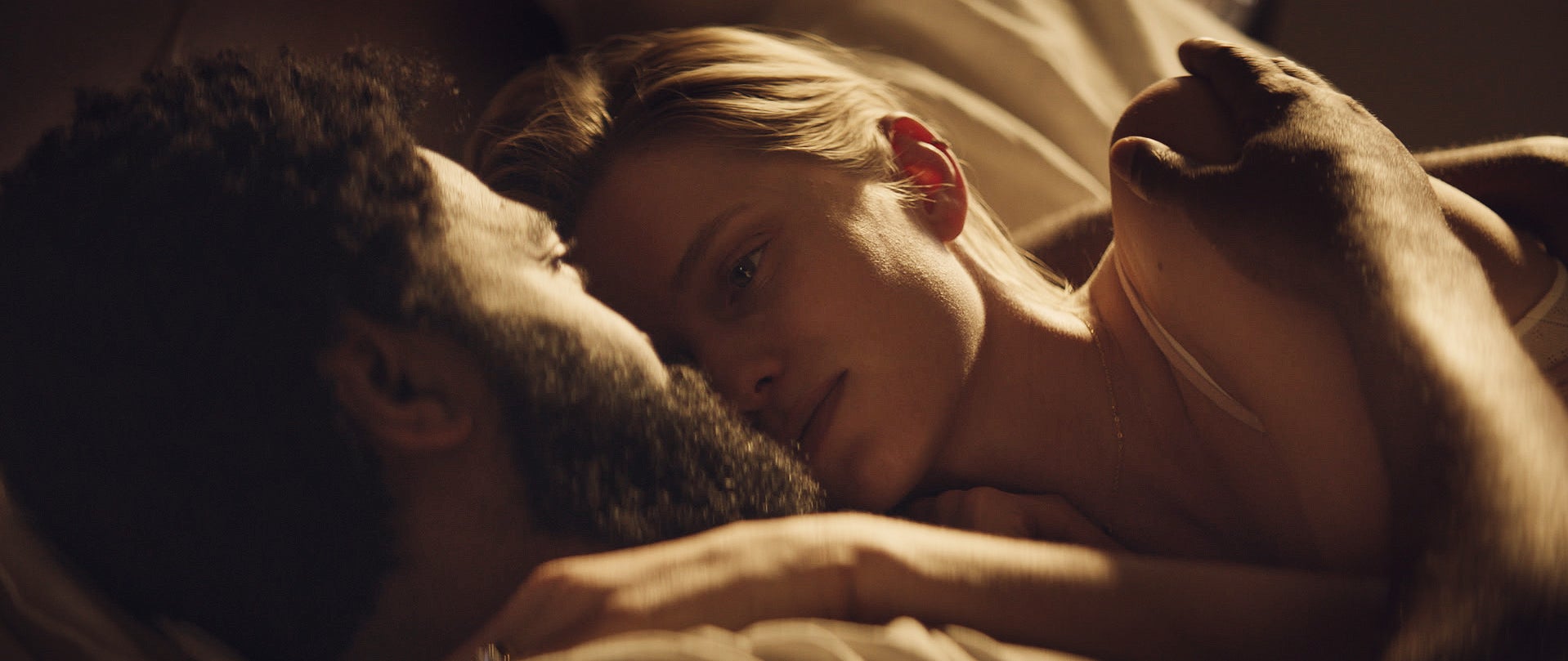Channel 4’s YouTube channel was set-up to attract “digital natives”. But no one could accuse Uzo Oleh’s stylish sci-fi drama Beth (available to view, on YouTube, in three 15-minute chunks) of pandering to Zoomers. Gen Zers don’t want kids, that’s what we’re told. Yet the desperate desire to reproduce and/or adopt is at the heart of a story whose playful and poignant title is the Hebrew word for “house”, “home”, “family unit”. Just to be clear, at no point are we introduced to someone called Beth. Seriously, viewers champing at the bit to meet an Elizabeth are in for a whole world of pain.
Instead, we meet Londoners Joe (Nicholas Pinnock) and Molly (Abbey Lee), who may be wealthy, witty and gorgeous, but have a far from perfect life. Joe has such low-quality sperm that, even with the help of IVF, Molly keeps miscarrying. They have a six per cent chance of a natural conception. Which is why they’re ecstatic when Molly miraculously gets pregnant and carries the baby to term. Here’s the catch. When the baby’s born, it looks just like Molly (who is white) and nothing like Joe (who is Black).
Joe is an excellent creation. The ultimate metropolitan male, he wears voluminous scarves and is endlessly supportive of his wife, who admits his kindness is “almost a little scary”. Joe’s waggish friend, Jude, who grew up with Joe in a foster home, suggests Joe’s problems in the spunk department have been caused by our hero’s adoption of liberal values (“It’s all a bit vegan down there!”). Like Othello before him, Joe seriously begins to doubt his wife’s fidelity. Yet even at his most frazzled, Joe never loses his sense of humour. The hard stare he gives an obtuse fellow parent is a comic delight.
It helps that Pinnock, so memorable as the compassionate Leon in series one of Top Boy, is able to handle every shift in mood (he’s especially compelling when acting alongside young children). Lee is also brilliant, though somewhat stymied by a script that increasingly puts the focus on Molly’s doll-like face and “ideal” body. You start to wonder where the story is going. Here’s the answer: downhill.
I won't into spoilery details here, but there’s a ginormous twist, which is not only poorly executed, but preposterous (none of the new information fits with what we know about the apparently sane, intelligent and caring Molly). I confess, I have high standards for the scripts of sci-fi stories. Watching musicals and action adventures, I’ll often wave through all sorts of illogical denouements. I get super picky, however, when it comes to sci-fi. It’s as if there’s a bouncer in my brain saying, “Woah, pal! You have to be Solaris-clever to be worthy of this genre!”
Maybe that’s not fair. And Beth (clearly made on a tight budget) does, at least, leave us with food for thought. In one early sequence, Joe imagines teaching an adopted child how to tell the time. The camera swings, gracefully, between Joe, a mixed-race boy and a clock, only for sleight of hand edits to a) demolish our preconceptions about how a child connected to this couple should look and b) offer an irresistibly cosy vision of Joe’s future that renders Beth’s final tableaux haunting. Oleh (whose 2021 short film Edicius was produced by Idris Elba and was technically much flashier) doesn’t so much condemn our culture for fetishising biological ties, as show how such thinking can hollow out the happiest of homes.

Another neat touch involves the use of the exquisitely fraught Sade track, “The Big Unknown”, which popped up at the end of Steve McQueen’s neo-noir, Widows. McQueen and Oleh are interested in the subtle, and not so subtle, ways in which a white partner can betray their Black spouse. By paying subliminal homage to McQueen’s glorious movie, Oleh adds yet another layer to his portrait of a marriage.
Yes, the actual pay-off is pants. I’m no doctor, but I’d say there’s a six per cent chance of it inspiring awe. But you should still check out Beth (which is also showing on “linear” TV) because, when it’s good, it’s a little miracle.







